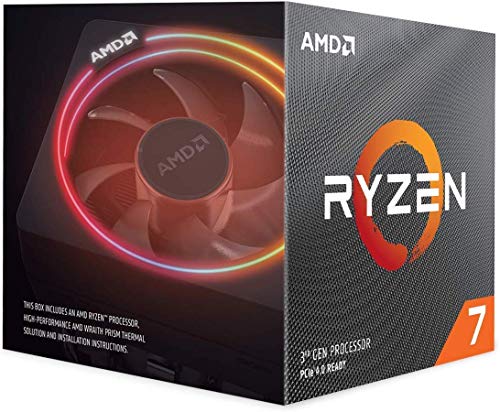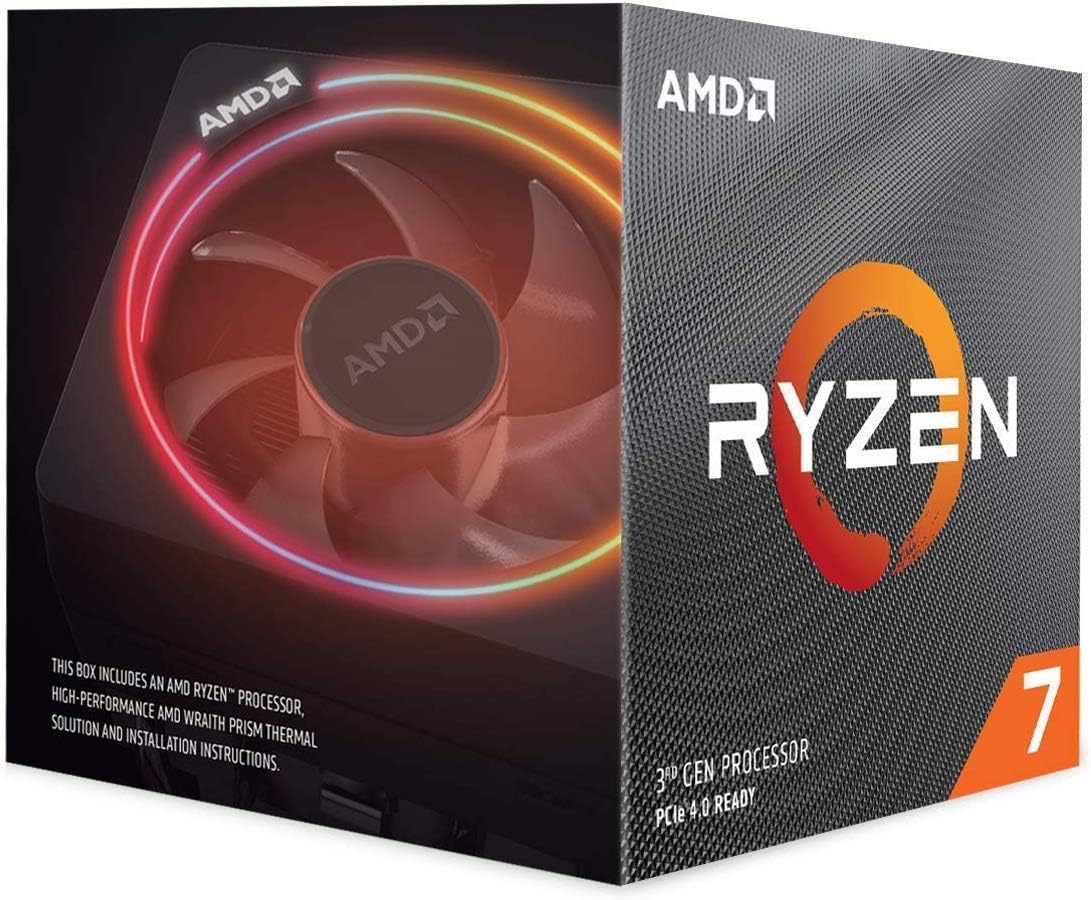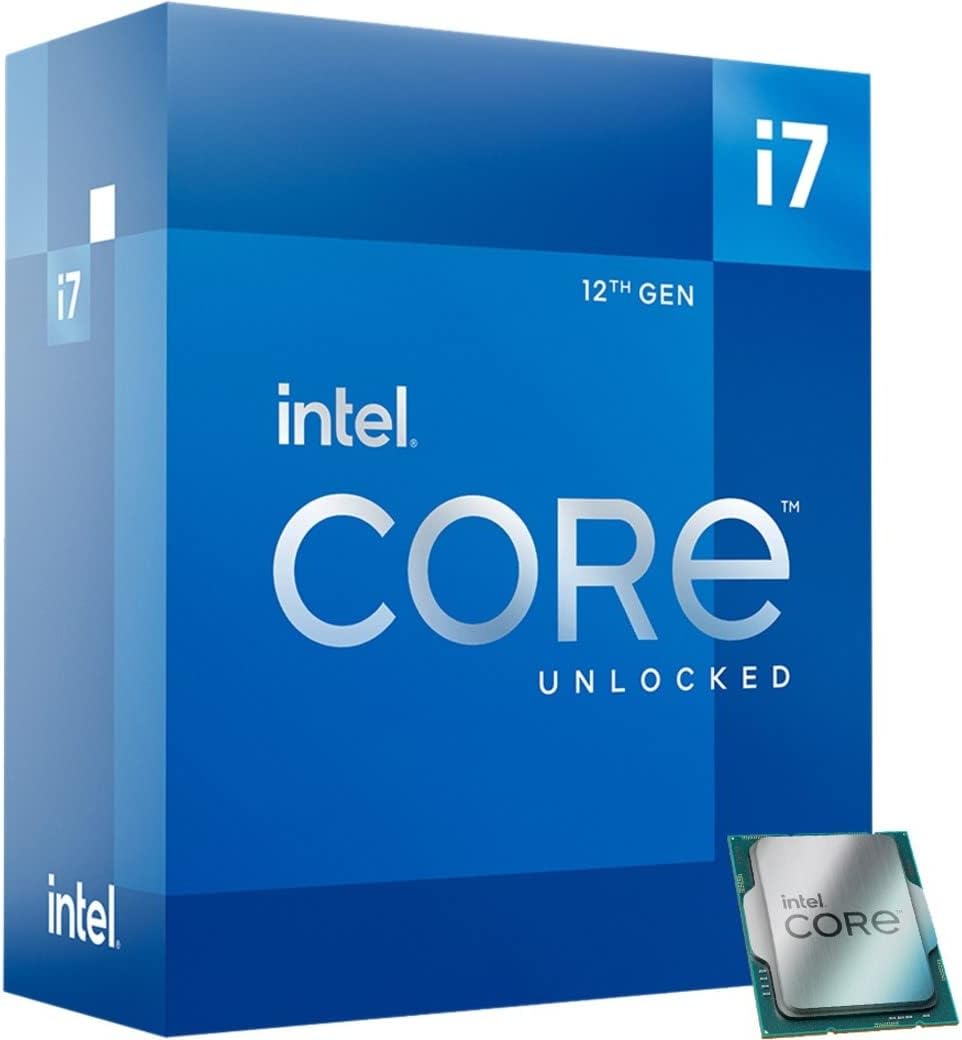Do you want to build your first gaming computer but aren’t sure where to begin? There are ways to build it to its maximum performance with the help of the Internet. Some tutorials cover hardware setup, while others go over installing an operating system. These are excellent resources for particular counsel, but what if you want to know where to start? It’s critical to make sure your CPU is up to the task if you want to get the maximum performance of your desktop PC or laptop.
Although CPUs are long-lasting and can live for years with proper care, PC technology is always changing. When paired with compatible current hardware, newer gaming CPUs use faster clock rates, larger cache sizes, and higher thread counts, resulting in better performance. Gaming is one of the areas that has benefited from this development. Finding the finest gaming CPU for your PC ultimately comes down to what you want to get out of your PC’s maximum performance and how to use your computer.
Today, these two processors are here to be reviewed whether they’re good for you or not. We will compare the AMD Ryzen 7 3700X 8-Core and the Intel Core i7-12700K—their similarities, differences, and quality.
Comparison Chart

AMD Ryzen 7 3700X 8-Core Review
The Ryzen 7 3700X has eight cores and sixteen threads as the previous generation. The key advantages of the Ryzen 7 3700X over the Zen 2 platform include a substantially larger L3 cache called Game Cache by AMD with Ryzen 3000 and support for the quicker PCI Express Gen 4 interface. These advancements are a gift to power users who want to be future-proofed. PICe 4.0 provides substantially greater theoretical throughput and bandwidth improvements for add-in cards like graphic cards for compatible storage devices.
In the short term, gamers will appreciate the generous 36MB of L3 cache, up from 16MB in the Ryzen 7 3700X. Because many games benefit from on-chip access to quicker memory, a larger cache could mean greater gaming performance. The Ryzen 7 3700X’s improvement gives it a noticeable advantage over its main rival, the Intel Core i7-12700K. The Intel chip also has eight cores. If you’ve been waiting for a Ryzen 7 chip to deliver a little more performance before buying one, the Ryzen 7 3700X is the one to choose.
However, upgrading from earlier Ryzen 7 CPUs isn’t recommended because the differences between generations are minor. Except for the Vega-graphics-equipped G series, all Ryzen CPUs require a separate graphics card for video output. On the other hand, this isn’t a big deal; gamers should pay for a mid-range graphics card. Many serious content creators will also require a graphics card for GPU-accelerated programs. The lack of an IGP will not impede these target markets.
Aside from the Ryzen 7 3700X, four more third-generation Ryzen CPUs are available on the market: the Ryzen 5 3600, the 12-core Ryzen 9 3900X, the six-core Ryzen 5 3600X, and eight-core Ryzen 7 3800X. If you’re hoping to manage intricate content-creation workflows, the Ryzen 7 3700X is at the low end of prosumer CPUs, but it’s more than capable in a pinch. For example, using the Handbrake program took only approximately a minute longer to encode a 12-minute 4K film to 1080p than the Ryzen 2950X, which has a 16-core CPU that costs more than twice as much as the 3700X.
Ryzen 7 processors have already proven to be exceptional performers, with features such as above-average included cooling fans. Many new Intel Core i7 and i9 chips have surpassed the value proposition, which may win or single-core speed but fall short on core and thread count, and in some cases, do not include cooling in the package. Many gamers will be interested in the Ryzen 7 3700X. Still, one of the original criticisms of Ryzen CPUs as the performance was inferior to that of an identical Intel processor when specific combinations of video card and resolution were used.
Intel Core i7-12700K Review
Intel’s Alder Lake CPUs have been making waves in the desktop processor industry, thanks to two revolutionary microarchitectures, one aimed for optimum speed and the other for optimal efficiency. Core counts are rising again, and the Core i7-12700K takes advantage of this, as well as some major architectural enhancements, to outperform its Rocket Lake predecessor.
For the time being, Alder Lake comprises three high-end overclockable K-series models and their graphics-less KF counterparts, which are slightly less expensive, with additional models on the way in the future. The P-cores are hyper-threaded, whereas the E-cores only have a single thread, resulting in thread counts that are not conventional. The Core i7-12700K has eight P-cores and four E-cores, totaling 20 threads, and sits between the 16-core, 24-thread Core i9-12900K and the 10-core, 16-thread Core i5-12600K.
Both DDR4 and DDR5 memory are supported by Alder Lake CPUs, although DDR5 has a few drawbacks. DDR5 is set to Gear 2 mode by default, having a higher latency. Furthermore, conventional motherboards can only accommodate DDR5-4800 with two physical slots. As a result, Alder Lake only supports DDR5-4400 at standard settings on any motherboard with four slots – even if only two are populated.
The Core i7-12700K has twelve CPU cores, with eight-Hyper-Threaded P-Cores based on Intel’s Golden Cove architecture accounting for the most performance. The golden cove is a high-performance architecture that succeeds the Cypress Cove design used in 11th Gen Rocket Lake CPUs. These cores have a base rate of 3.6GHz, but they can hit 5.0GHz in extreme conditions utilizing Turbo Boost Max 3.0 or 4.9GHz with a regular turbo boost right out of the box.
Intel’s decision to combine high-and low-power core designs in the same chip has resulted in a new manner for the business to differentiate its processors. All Core i7 and Core i9 processors in Rocker Lake were essentially the same: eight-core, 16-thread CPUs with clock speed changed correspondingly. The Core i9-12900K offers a significant advantage over the Core i7-12700K with Alder Lake since it has four additional cores, a faster clock speed, and an additional 5MB of L3 cache.
The Key Difference Between The Two Processors
The Ryzen 7 3700X comes with a cooling fan and RGB lights. You won’t need to buy a separate CPU cooler. You’ll be operating between 3.6GHz and 4.4GHz if you don’t overclock. The Inter Core i7-12700K has a slightly faster maximum boost speed of 4.9GHz, although having the same base clock speed. The difference in clock speeds between the Ryzen 7 3700X and the first-gen Ryzen 7 1700X isn’t as great as it was a decade or so ago, but it’s still noticeable.
However, for a pure gaming design, the Core i7-12700K may be preferable to the AMD Ryzen 7 3700X. In most gaming tests, the difference in performance between the two is minor, and the Core i7 wins one. AMD’s Ryzen 7 and Ryzen 9 processors all performed admirably, but the Alder Lake CPUs that have been tested so far have all shown distinct advantages in most gaming tests using a separate card.
Intel Core i7-12700K is newer than AMD Ryzen 7 3700X. That was released with a gap of 2 years and 5 months later. Intel Core also has more physical cores than the AMD Ryzen, with 4 of them. It is also 53% faster in a single-core Geekbench v5 test – 1936 vs. 1268 points. Intel Core also has a newer PCI Express version – 5.0 and includes an integrated GPU Intel UHD graphics 770 that AMD doesn’t. 14% higher turbo boost frequency on the side of Intel Core (5 GHz vs. 4.4 GHz)
While the AMD Ryzen 7 3700X has a much more modern manufacturing process of 7 vs. 10 nanometers on Intel Core i7. Ryzen 7 also has a 7MB larger L3 cache size than Intel Core i7. AMD Ryzen 7 consumes up to 48% less energy than the Core i7 12700K. (65 vs. 125 Watt).
Similarities Between The Two Processors
Both of them are good for gaming. Intel and AMD processors were differently built when it came to gaming. Although they are different in giving you the best experience for gaming, they both excel for gaming for those gamers out there. Intel’s top CPUs like Intel Core i7-12700K can become more decent in gaming if you add a decent cooler to it.
On the other hand, AMD can upgrade the gaming experience of its user by its multithreading. Another crucial feature to consider in a gaming CPU is threads. They are the virtual components that split a processor’s cores. A single core can create two threads via multithreading, so a CPU with four cores will have eight threads. If you want to concentrate on gaming rather than multitasking, the Ryzen 7 3700X is a good option. When operated individually, the Ryzen 7 3700X can handle practically all workloads.
Best Use of Each Processor
The Intel Core i7-12700K is a high-end maximum performance desktop processor from Intel’s 12th Gen Alder Lake series, designed for intense multitasking, gaming, or specialized work. The new CPUs accept both DDR4 and DDR5 RAM, so you may save money by using the older standard or upgrading to the latest and greatest for faster performance at a greater price. If you’re upgrading or creating a new PC right now, you might not have much choice because the greatest DDR5 RAM is as scarce as the top graphics cards. In any event, the Core i7-12700K will benefit from this selection of DDR4 and DDR5 RAM.
AMD’s third-generation Ryzen CPUs have faster clock speeds and more cores than the first and second-generation parts, and the Ryzen 7 3700X is currently one of the top gaming CPUs available. AMD almost doesn’t need the faster Zen 2 CPUs because the Zen 2 CPUs are so fantastic. It’s backup 3700X is more than competent in controlling the offense and isn’t as demanding in signing incentives and contracts.
Which is The Winner?
The Intel Core i7-12700K is the winner of this bout. The newest i7 CPUs, which have 8 cores and 16 threads, are especially good for gaming and streaming. Streaming can deplete your core count quickly. As a result, a CPU with a high core count can significantly improve the experience, where the i7-12700K shines. The Core i7-12700K is a compelling processor that will undoubtedly become a popular choice among PC builders.
When fully unleashed with a good cooler, the i7-12700K is ideal for high-requirement applications. In terms of gaming, the i7-12700K is the greatest option. For individuals who aren’t into CPU overclocking, the i7-12700K will make a lot more sense in terms of value and should be a far better price than its competition.
Final Takeaway
All processors had a single core less than a decade ago. Single-core processors are now the exception rather than the rule. Multi-core processors have grown in popularity as their availability has increased, and developed software to take advantage of multi-core technology. Ranging from dual-core to eight-core, various processors are available today. It is important too to know the cache of a processor. It is equivalent to the memory of a computer. The cache of a CPU is a small amount of very fast memory for temporary storage. This enables a computer to go for a maximum performance that quickly accesses files stored in the processor’s cache. The greater the processor of the CPU, the more files it can store for speedy retrieval.
FAQs
How can you check your PC’s core?
Press Ctrl + Shift + Esc to open Task Manager or Ctrl + Alt + Del, then select the Performance Tab to see how many cores your PC has.
Which is the most powerful processor in the world?
AMD’s Threadripper Pro 3995WX is the most powerful processor with a 64-core and 128-thread processor. Imagine how powerful this processor is!
What is the slowest processor?
10.75 MHz Intel Pentium 1 is the slowest processor in the Database.
Why are processors so small?
Processors today are small to get better performance. A small transistor takes less energy to switch than a larger one.
Can you put a new processor in an old computer?
Yes, you can, but upgrading a unit’s processor is impossible; even if your unit supports the changing processor, it is more likely to harm your unit than boost it.
Are You Looking for a Good Quality Product?
Check the most popular products today and see what they can do. Product Fight covers you with this regard! We cover Lawn & Garden, Electronics, and Computer & Accessories. You can trust us to provide you with the best and only the best!






